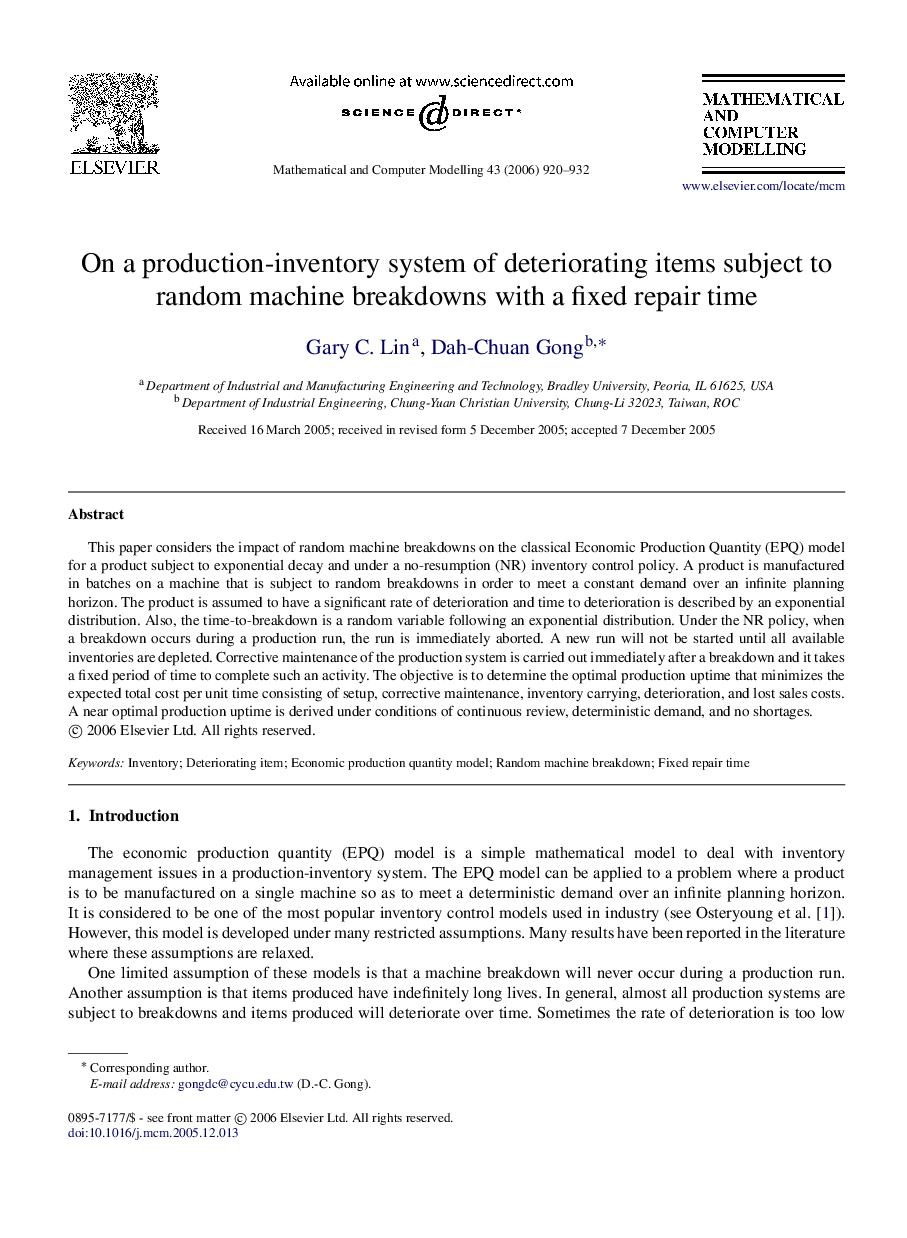| کد مقاله | کد نشریه | سال انتشار | مقاله انگلیسی | نسخه تمام متن |
|---|---|---|---|---|
| 1137893 | 1489219 | 2006 | 13 صفحه PDF | دانلود رایگان |

This paper considers the impact of random machine breakdowns on the classical Economic Production Quantity (EPQ) model for a product subject to exponential decay and under a no-resumption (NR) inventory control policy. A product is manufactured in batches on a machine that is subject to random breakdowns in order to meet a constant demand over an infinite planning horizon. The product is assumed to have a significant rate of deterioration and time to deterioration is described by an exponential distribution. Also, the time-to-breakdown is a random variable following an exponential distribution. Under the NR policy, when a breakdown occurs during a production run, the run is immediately aborted. A new run will not be started until all available inventories are depleted. Corrective maintenance of the production system is carried out immediately after a breakdown and it takes a fixed period of time to complete such an activity. The objective is to determine the optimal production uptime that minimizes the expected total cost per unit time consisting of setup, corrective maintenance, inventory carrying, deterioration, and lost sales costs. A near optimal production uptime is derived under conditions of continuous review, deterministic demand, and no shortages.
Journal: Mathematical and Computer Modelling - Volume 43, Issues 7–8, April 2006, Pages 920–932